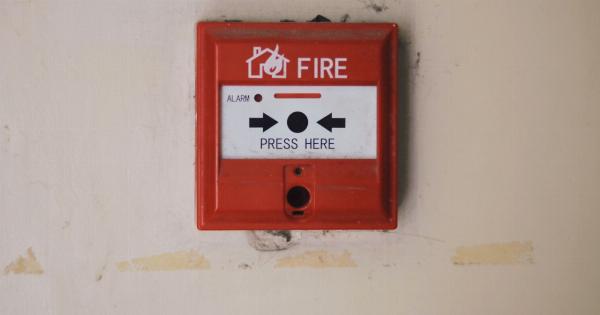Our bodies are complex and wonderful machines, but sometimes they break down or malfunction in ways that require prompt medical attention. Proper diagnosis and treatment of symptoms can save a life or prevent serious damage to the body.
In this article, we will explore some of the urgent symptoms that require immediate medical attention.
Chest Pain and Tightness
Chest pain and tightness are two of the most common symptoms that require immediate medical attention. Chest pain may indicate a heart attack, which is a life-threatening emergency.
The pain may be felt as a pressure, a squeezing sensation, or a burning sensation in the chest. It may also radiate to the neck, jaw, back, arms, or stomach. Other symptoms may include shortness of breath, nausea, dizziness, or lightheadedness.
Chest tightness, on the other hand, may indicate other serious conditions such as a pulmonary embolism, a collapsed lung, or aortic dissection.
Pulmonary embolism occurs when a blood clot blocks an artery in the lungs, which can be fatal if not treated promptly. A collapsed lung, also called pneumothorax, happens when air leaks into the space between the lung and the chest wall, which can cause the lung to collapse.
Aortic dissection occurs when the wall of the aorta tears, which can cause severe pain and internal bleeding.
Difficulty Breathing
Difficulty breathing, also called dyspnea, is another urgent symptom that requires immediate medical attention. It may be caused by a wide range of conditions such as asthma, pneumonia, heart failure, or anaphylaxis.
Anaphylaxis is a severe allergic reaction that can cause swelling of the airways and lead to respiratory distress, which can be life-threatening. Difficulty breathing may also indicate a pulmonary embolism, which we mentioned earlier, or a collapsed lung.
Severe Headache
A severe headache, also called a thunderclap headache, is a sudden and intense headache that peaks within seconds or minutes. It may be accompanied by other symptoms such as nausea, vomiting, or neck stiffness.
A severe headache may indicate a ruptured brain aneurysm, which is a medical emergency that requires immediate attention. A brain aneurysm is a weak spot in the wall of a brain artery that can bulge or burst, causing bleeding in the brain and potentially life-threatening complications.
Sudden Weakness or Numbness
Sudden weakness or numbness, especially on one side of the body, may indicate a stroke, which is a medical emergency that requires prompt medical attention.
A stroke occurs when blood flow to the brain is blocked or reduced, which can cause brain damage or death. Other symptoms of stroke may include confusion, difficulty speaking or understanding, vision impairment, or severe headache. Time is critical in the treatment of stroke, and early intervention can significantly improve the outcome.
Conclusion
In conclusion, many urgent symptoms require prompt medical attention to prevent serious complications or even death.
Chest pain and tightness, difficulty breathing, severe headache, and sudden weakness or numbness are some of the most common symptoms that require immediate attention. It is important to seek medical help as soon as possible if you experience any of these symptoms to receive timely diagnosis and treatment.






























